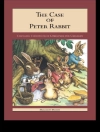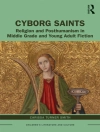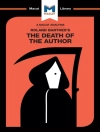This eye-opening study draws attention to the largely neglected form of the early modern prologue. Reading the prologue in performed as well as printed contexts, Douglas Bruster and Robert Weimann take us beyond concepts of stability and autonomy in dramatic beginnings to reveal the crucial cultural functions performed by the prologue in Elizabethan England.While its most basic task is to seize the attention of a noisy audience, the prologue’s more significant threshold position is used to usher spectators and actors through a rite of passage. Engaging competing claims, expectations and offerings, the prologue introduces, authorizes and, critically, straddles the worlds of the actual theatrical event and the ‘counterfeit’ world on stage. In this way, prologues occupy a unique and powerful position between two orders of cultural practice and perception.Close readings of prologues by Shakespeare and his contemporaries, including Marlowe, Peele and Lyly, demonstrate the prologue’s role in representing both the world in the play and playing in the world. Through their detailed examination of this remarkable form and its functions, the authors provide a fascinating perspective on early modern drama, a perspective that enriches our knowledge of the plays’ socio-cultural context and their mode of theatrical address and action.
Douglas Bruster & Robert Weimann
Prologues to Shakespeare’s Theatre [PDF ebook]
Performance and Liminality in Early Modern Drama
Prologues to Shakespeare’s Theatre [PDF ebook]
Performance and Liminality in Early Modern Drama
Cumpărați această carte electronică și primiți încă 1 GRATUIT!
Limba Engleză ● Format PDF ● Pagini 208 ● ISBN 9780203362686 ● Editura Taylor and Francis ● Publicat 2004 ● Descărcabil 6 ori ● Valută EUR ● ID 2289657 ● Protecție împotriva copiilor Adobe DRM
Necesită un cititor de ebook capabil de DRM












